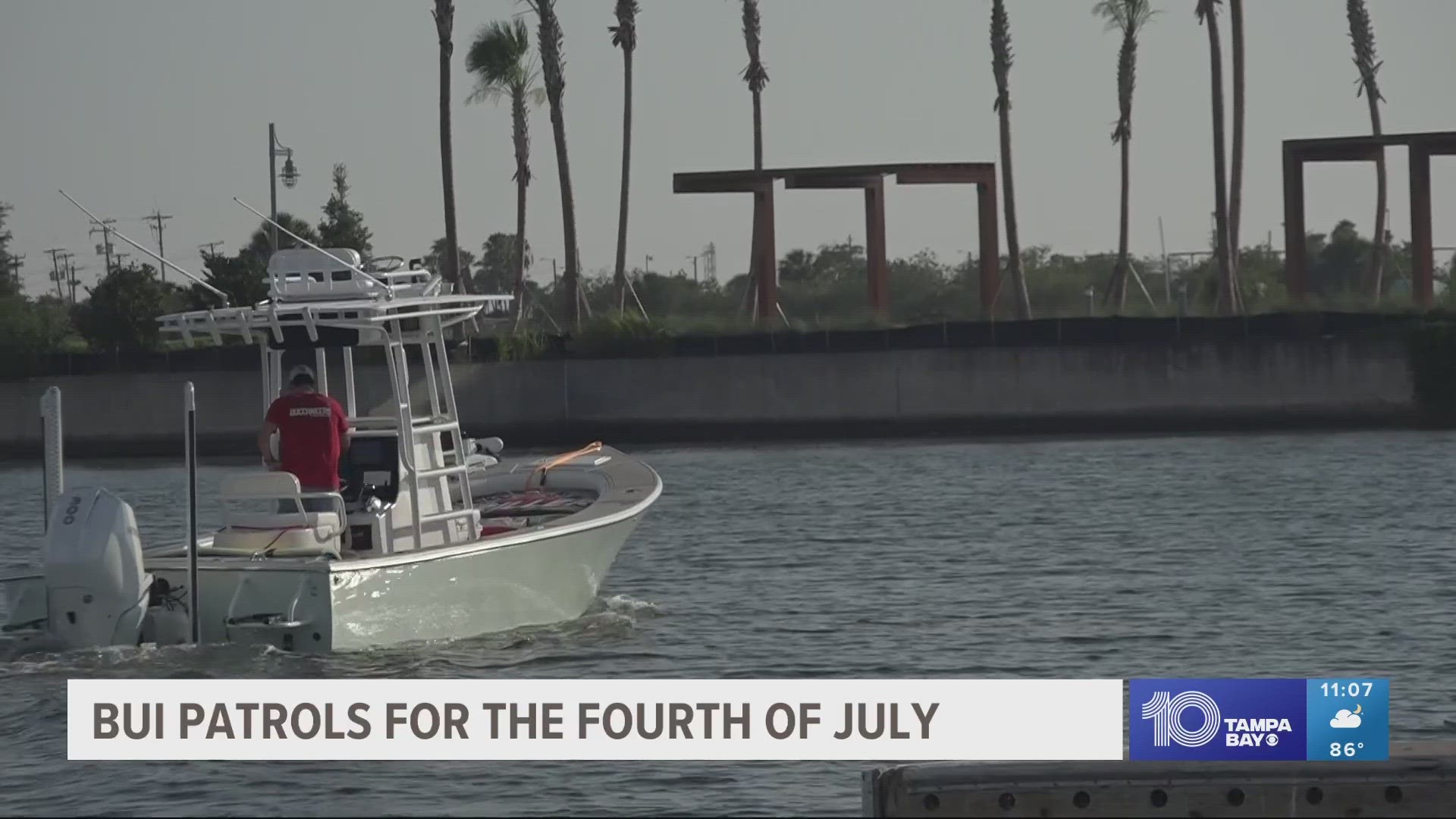TAMPA, Fla. — This Fourth of July weekend law enforcement has an important message, "Do not drink and drive your boat." It's something that could land you a hefty fine or prison time.
One Tampa Bay boater said it seems like a lot of people are disregarding the rules on the water. Brian Cantrell said he has seen people driving drunk on the water. He's noticed people on the wrong side of the channel.
"They veered in the same direction and I just say, 'lord be with me,' and hopefully they can get by me," Cantrell explained.
Florida Fish and Wildlife Conservation Commission reports the number of people dying in boating accidents is increasing. In 2022, there were 65 people who died in boating accidents in Florida. Also last year, law enforcement issued 641 citations for alcohol and drug use while boating.
Last year, FWC reported most boating deaths happened in May and June. Alcohol use was the leading known cause of death. To prevent this from happening, FWC is patrolling.
"The ability for law enforcement to stop a boat is different than it is for a vehicle," the Managing Partner for Busciglio Sheridan & Schoeb, Joshua Sheridan said.
As a Tampa Bay attorney, Sheridan handles BUI cases. He said, FWC officers can stop you for a variety of reasons. "Things that are just visual to them, that could cause them to stop you."
For example, if children are on board, officers may want to check if you have personal floatation devices onboard. At the same time, they could see signs of drinking and investigate.
"I just think it’s a little bit easier for an officer to make a stop on the water than the road," Sheridan said.
The way an officer determines if someone is intoxicated driving a boat differs from how they investigate if someone is drunk driving a car.
"The investigation, the dynamic, it’s all very different," Sheridan added.
FWC will be out on the water for the Fourth of July patrolling as a part of "Operation Dry Water."

